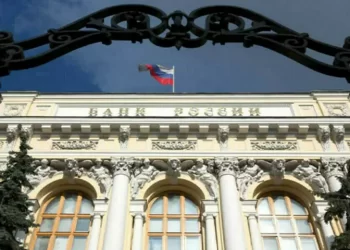JERUSALEM (news agencies) — The Israeli military said Thursday that it has confirmed that the head of Hamas’ military wing, Mohammed Deif, was killed in an airstrike in Gaza in July. The announcement came a day after an apparent Israeli strike in the Iranian capital killed Hamas’ top political leader.
The rapid events this week have left U.S., Egyptian and Qatari mediators scrambling to salvage talks for a cease-fire deal in Gaza. At the same time, international diplomats want to avert an escalation into all-out regional war after the assassination in Tehran of Hamas’ Ismail Haniyeh, Israel’s killing of a top Hezbollah commander in a Beirut strike and — now — Israel’s announcement of Deif’s death.
There was no immediate comment on the Israeli claim by Hamas, which had previously said Deif survived the strike in Gaza. A member of Hamas’ political bureau, Izzat al-Risheq, said in a statement Thursday that confirming or denying his death is the responsibility of the group’s military wing, known as the Qassam Brigades, which so far has been silent.
The apparent elimination of Haniyeh and Deif — two of Hamas’ most senior figures — brings a victory for Israeli Prime Minister Netanyahu as Israeli forces continue to operate in Gaza.
After meeting with military officials Thursday, Netanyahu declared that Deif’s death “enforces a simple principle that we have established, that whoever hurts us, we hurt them.”
“We will exact a very heavy price for any act of aggression against us from any arena,” Netanyahu said. Israeli and U.S. officials said Netanyahu was expected to have a phone conversation later Thursday with President Joe Biden.
The assassinations also put Netanyahu at a crossroads.
They present him with a potential political off-ramp to end the war, allowing him to retreat from his lofty promises of “total victory” while showing Israelis that Hamas’ military capabilities suffered a debilitating blow.
The killings could also lead him to harden Israel’s position in cease-fire talks, with Israeli officials insisting the blows to Hamas will force it to compromise. Hamas could dig in as well in the talks — or quit them entirely.
Israel believes that Deif, the head of Hamas’ military, and Yahya Sinwar, the top Hamas leader in Gaza, were the chief architects of the Oct. 7 attack that killed some 1,200 people in southern Israel and triggered the Israel-Hamas war. Sinwar is believed to remain in hiding in Gaza.
Israel targeted Deif in a July 13 strike that hit a compound on the outskirts of the southern Gaza city of Khan Younis. The military said at the time that another Hamas commander, Rafa Salama, was killed. More than 90 other people, including displaced civilians in nearby tents, were also killed, Gaza health officials said.
In a statement issued Thursday, the Israeli military said confirmation of Deif’s death was made “following an intelligence assessment.”
Elsewhere, Israeli airstrikes on a school sheltering displaced Palestinians in the Gaza City district of Shujaiya killed at least 15 people Thursday and wounded more than 40 others, according to the Palestinian Civil Defense, which sent teams to recover bodies. The army alleged that Hamas fighters used the compound to plot attacks against Israel.
In its 10-month campaign of bombardment and offensives in Gaza, Israel has killed some 39,480 Palestinians and wounded more than 91,100 others, according to Gaza’s Health Ministry, which does not differentiate between civilians and combatants. More than 80% of the population of 2.3 million has been driven from their homes, the vast majority crammed into tent camps in the southwest corner of the territory, with limited food and water.
So far, Netanyahu has said he is determined to continue the war until Hamas is destroyed. Far-right nationalist coalition partners, on whom he relies to stay in power, have threatened to leave the government if he halts the war.
After the announcement about Deif, far-right Finance Minister Bezalel Smotrich said the “defeat of Hamas is closer than ever.” He said the military would continue to “eliminate thousands of other terrorists until our security is restored and we bring the hostages home.”
Israeli Defense Minister Yoav Gallant said the strike that killed Deif was a “significant milestone” toward achieving the goals of the war. “The results of this operation reflect that Hamas is an organization in disintegration,” he wrote on X.
Deif was one of the founders of Hamas’ military wing in the 1990s. He led the Qassam Brigades for decades through campaigns of suicide bombings against Israeli civilians, volleys of rocket fire into Israel and repeated Israeli assaults on Gaza since Hamas took power there in 2007.
He remained a mysterious, underground figure in Gaza. He never appeared in public, was hardly ever photographed and only rarely was his voice heard in audio statements. He survived a string of Israeli assassination attempts.
Haniyeh’s killing in particular threw into disarray months of efforts at reaching a deal for a cease-fire in Gaza and a hostage release. Haniyeh had been a main negotiator in those talks.








